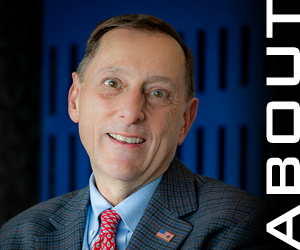Capitol Report | Fall 2019
Fall Veto Session: A Recipe for Chaos
With landmark legislation needing corrective amendments and a tax on professional services possibly coming to light, the Illinois General Assembly is destined for a chaotic fall.

Marty Green, Esq.
Senior VP and Legislative Counsel, Illinois CPA Society
The Latest on Advocacy and Legislation
Gaming expansion. Sports betting. Recreational cannabis. Infrastructure. Even a state
operating budget? Yes, Governor J.B. Pritzker and the democratic majorities in the House and
Senate scored an impressive legislative tally during the spring legislative session. I would add
that many of these measures and hundreds of others were passed with bi-partisan support,
including the always-elusive state operating budget and a vertical and horizontal capital
infrastructure program. All told, the final tally stands at 591 bills signed and eight bills vetoed
by the governor.
The breadth of legislation passed during the spring left state agencies like the Department of
Revenue, Gaming Board, and Department of Financial and Professional Regulation, spending
their summer months preparing for implementation. Unsurprisingly, these preparations have
identified several technical issues that need to be addressed and corrections that must soon
be made in order for the legislation signed into law to be fully implemented as intended.
The General Assembly has six working days scheduled for its fall veto session when it would
typically review and consider the governor’s vetoes and determine if they, for whatever reason,
should be overridden. I suspect the General Assembly will spend little time convened over
vetoes this fall. Rather, legislators will likely reconvene in regular session to consider corrective
amendments to legislation recently signed into law.
Much of the focus is likely to fall on the technical issues tied to the variety of gaming, tax, and
cannabis legislation passed. It’s also likely that legislation to close the embattled Sterigenics
facility in Willowbrook, Ill. will be considered.
One area that we are closely watching is if Chicago Mayor Lori Lightfoot will request the
General Assembly to pass legislation authorizing the City of Chicago to tax professional
services, such as law firms and accounting firms. Lightfoot first floated the idea of a value-added
tax (VAT) on high-end law firms and international accounting firms the weekend before
the March 2019 Mayoral Election. Now as mayor, Lightfoot is seeking all ways possible to
combat Chicago’s hemorrhaging financial situation and municipal pension obligations. She
has even asked Pritzker to consider consolidating Chicago’s pensions into the state pension
systems and taxing retirement income as a mechanism to help fund the pension obligations.
Pritzker readily rejected Lightfoot on these issues, which seems to have spurred Lightfoot to
resort back to talking about taxing “high-end professional services.”
As of the time of this writing, Lightfoot has not put anything in writing
or offered any specifics in the way of percentages, numbers, or
scope of a professional services VAT. To some relief, the mayor has
stated her opposition to taxing consumer services. Pending a
formal announcement, the Illinois CPA Society is taking Lightfoot’s
proposals seriously. A professional services tax should be of
great concern to all CPAs, lawyers, and other professional
service providers not just in Chicago but throughout the state. A
VAT on professional services in the limited scope of the City of
Chicago could quickly morph into a statewide VAT on all
professional services ranging from attorneys, consultants, CPAs,
realtors, and more.
Traditionally, the Illinois General Assembly has recognized the
tenants of good tax policy and avoided any consideration of taxing
professional services. Pritzker made a statement during his
gubernatorial campaign that taxing services should be considered
but immediately retracted that statement the same day.
Recognizing the General Assembly’s reluctance to tax professional
services, there are other factors that make a proposal of this nature
difficult to achieve. First, there are legal impediments. The Illinois
Supreme Court has previously ruled that a tax of this nature violated
the Illinois Constitution’s uniformity clause because it treated
similarly situated taxpayers differently (
Commercial National Bank
of Chicago v. City of Chicago, 89 Ill.2d 45 (1982)). Second,
Lightfoot’s proposal violates fundament principles of tax policy.
Good tax policy requires that a tax system be neutral and promote
economic growth. The mayor’s proposal violates these principals.
The tax system should not be used to micromanage the economy
or create winners and losers within a group of similar professional
competitors. There would also be tax pyramiding. Accounting and
legal services are business inputs and should not be taxed under
sales and use tax because of tax pyramiding. Neutrality and
horizontal equity would be lost because law firms and accounting
firms provide services performed by other professional service
firms who would not be taxed. This would result in similar economic
actors being taxed differently. Additionally, there are enormous
barriers to enforcement to professional services taxation and sound
economic arguments as well.
We have spent the summer months working with coalition partners,
including the AICPA, Taxpayers Federation of Illinois, the Illinois
State Bar Association, the Illinois Chamber of Commerce, the
Chicagoland Chamber of Commerce, the Chicago Bar Association,
and other stakeholders, to prepare a strategy to fight any legislative
battles that may arise during the fall veto session.
Considering the Illinois General Assembly’s hearty agenda for the
fall veto session with the numerous needed corrections in tax,
gaming, and cannabis legislation alone, I am predicting a chaotic
fall. This chaos could prevent Lightfoot from introducing a proposal
to tax professional services—or not.
As we move through the fall months, I may reach out to you through
our online advocacy platform to contact your legislator to oppose
a tax of this nature. I will continue to keep you informed of
developments through Capitol Dispatch and other communications.
In the meantime, if you are talking to your elected legislators, flex
your professional expertise and let them know that you oppose
taxing professional services.
Author’s Note: This column includes my personal observations of the evolution
of the legislative environment and are not necessarily the views of the
Illinois CPA Society.